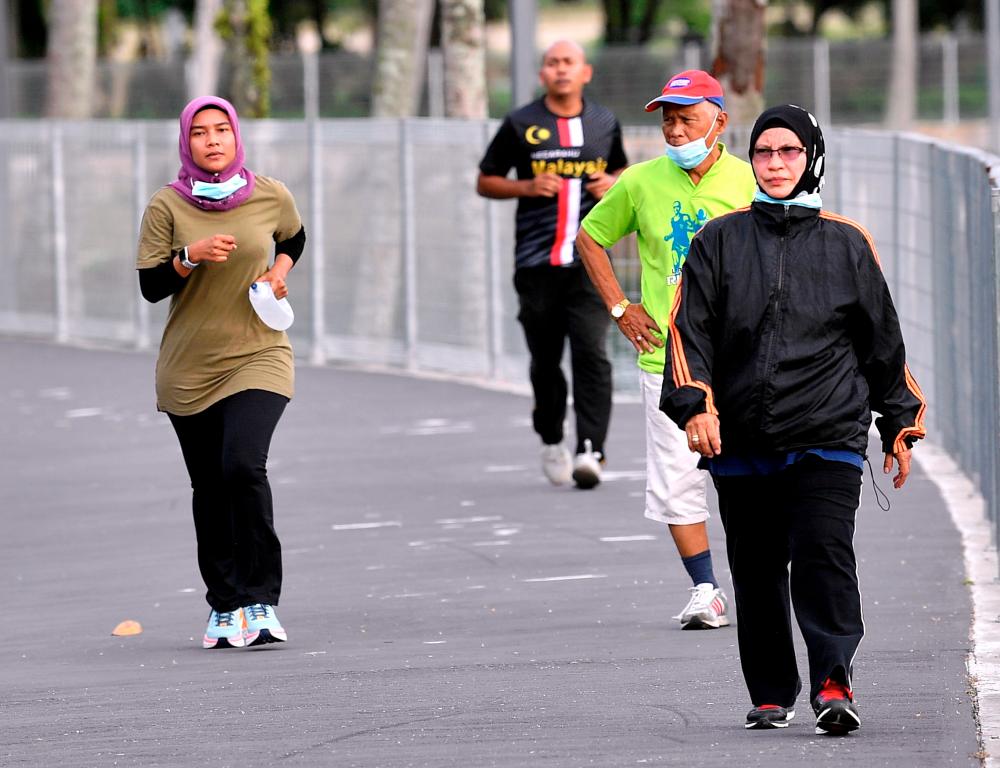PETALING JAYA: Exercise is important to maintain physical fitness and overall health and wellness, so why don’t Malaysians do it?
In the 2019 National Health and Morbidity Survey, 50.1% of the country’s adult population were reported to be overweight (30.4%) or obese (19.7%).
Similarly, the United Kingdom medical journal, The Lancet, pointed to Malaysia as being the most obese country in Southeast Asia.
But despite the staggering figures, why are some Malaysians still reluctant to exercise?
Life coach Suraya Kulop said Malaysians are reluctant to exercise due to their busy lifestyles, especially as the nation eases towards a post-Covid 19 recovery phase.
“Our habits are inter-related with our mindset. When we were in lockdown, we started to exercise to motivate ourselves and occupy our time,” she told theSun.
She said it would take as much as 21 days of daily workouts to get into the habit of exercising.
“A simple exercise can mean a 20-minute brisk walk three to four times a week. Hormones such as endorphins, which are produced in our brain, are released when we move and this can improve our mood, which is good for our overall health.”
Suraya said another reason behind the reluctance to exercise is that it is not seen as enjoyable.
Dietitian Reshmy Ranee echoed this sentiment. She said most people do not care much about their health, until they are faced with a certain illness.
“Most don’t care much about diabetes until they or someone close to them has the disease.
“There is a lack of information on how to manage diabetes and the food (those affected) should avoid.”
Reshmy said companies have a responsibility to ensure their employees are healthy.
“There must be better ways to approach individuals besides organising health talks or producing pamphlets that are not updated.
“People should be encouraged to exercise.”
Reshmy advised individuals to have a blood test done to determine if they are diabetic or pre-diabetic.
She cited a study released in 2020 in Penang, where 19.6% who were tested were found to be diabetics and 10.12% were pre-diabetics.
“Once an individual knows their bloodwork, they can seek the assistance of other professionals, like dietitians, to plan their meals and fitness trainers for exercise regimes.
“There are also certified diabetes educators who can teach diabetics how to manage their lives in terms of medications, exercise and checking feet for signs of injury.”
Reshmy said there is a high probability that by now, these pre-diabetics would already be diabetics.
She also said it was vital for primary schools to have a syllabus on healthy eating.
“It is estimated that 1.65 million Malaysian schoolchildren are expected to be overweight or obese by 2025.”
Former deputy health minister Lee Boon Chye had previously called on the government to allocate additional funds in the national budget to combat non-communicable diseases (NCD).
Common NCD include diabetes, cardiovascular diseases and cancers as well as chronic respiratory diseases.
“We need to have more support for preventive healthcare measures that include corporate entities.
“Some insurance companies have collaborations to raise awareness of the importance of health.
“Similarly, there is the Healthy Community Empowers the Nation programme that provides community awareness and knowledge on the prevention of NCD.
“It has easy daily exercises that have a positive impact on one’s health.”










